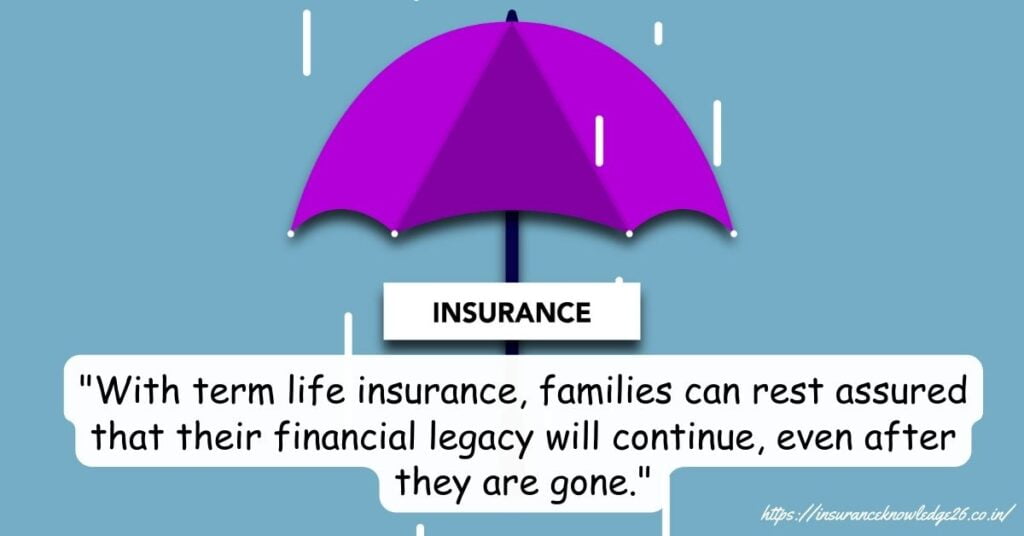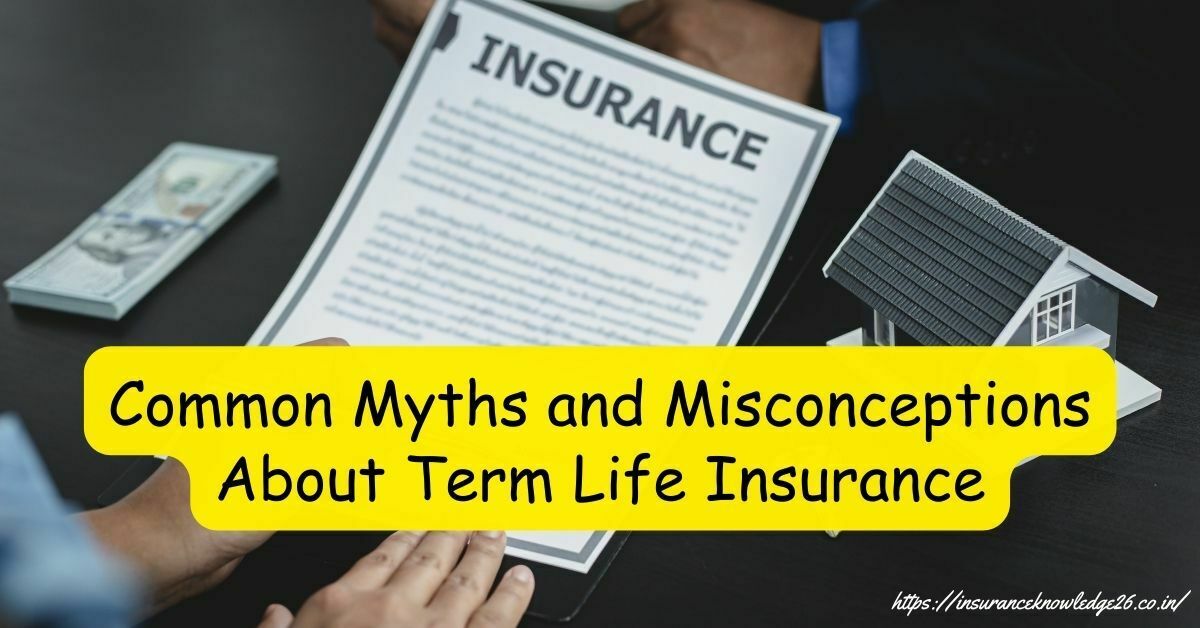Unraveling the Truth: Debunking Common Myths and Misconceptions About Term Life Insurance
Term life insurance is a popular and straightforward form of life insurance that provides coverage for a specific period, typically ranging from 5 to 30 years. Despite its widespread use and practicality, various myths and misconceptions have clouded the understanding of term life insurance for many individuals. In this comprehensive analysis, we will explore and debunk some of the most prevalent myths surrounding term life insurance, shedding light on the truth behind this essential financial protection.

Myth 1: Term Life Insurance is Too Expensive
One of the most common misconceptions about term life insurance is that it is overly expensive, dissuading potential policyholders from considering this coverage. In reality, term life insurance is generally more affordable compared to permanent life insurance policies like whole or universal life insurance. The reason for this cost difference lies in the nature of term life insurance – it provides coverage for a specific period, which means the risk of the insurance company having to pay a death benefit is lower than with permanent policies.
Additionally, term life insurance allows individuals to choose the coverage amount and term length that suits their needs and budget. With a bit of research and comparison shopping, it is possible to find affordable term life insurance policies that provide adequate protection for loved ones without breaking the bank.
Myth 2: Term Life Insurance Does Not Offer Any Benefits Besides Death Benefit
Some people mistakenly believe that term life insurance is a one-dimensional product that solely offers a death benefit. While it is true that the primary purpose of term life insurance is to provide a death benefit to beneficiaries in case the policyholder passes away during the term, modern term policies may offer additional benefits.
For instance, some term life insurance policies come with optional riders or add-ons, such as critical illness riders or disability income riders. These riders can provide financial support to the policyholder in case of a severe illness or disability during the term of the policy, offering a layer of protection beyond the death benefit. It is essential for prospective policyholders to explore the various options and riders available to customize their term life insurance policy according to their unique needs.
Myth 3: Term Life Insurance is Only for Young and Healthy Individuals
Another prevalent myth is that term life insurance is primarily designed for young and healthy individuals with dependents. While it is true that younger individuals may generally benefit from lower premiums due to their lower mortality risk, term life insurance can still be a suitable option for people in different life stages.
For example, older individuals who may have paid off their mortgages and no longer have dependent children might still find value in term life insurance. They may want to leave a financial legacy, cover final expenses, or provide for a surviving spouse. Additionally, individuals with debts, such as student loans or mortgages, may opt for term life insurance to ensure their loved ones are not burdened with these obligations in the event of their untimely passing.

Myth 4: You Can Only Buy Term Life Insurance Through Agents
Traditionally, life insurance policies, including term life insurance, were primarily sold through insurance agents. However, with the advancement of technology and changes in consumer preferences, individuals now have more options to purchase term life insurance.
Online platforms and insurance comparison websites have emerged, allowing people to explore and purchase term life insurance policies directly from insurance companies without the need for an agent. These online options provide a convenient and transparent way to compare quotes, coverage options, and policy details, enabling consumers to make informed decisions on their own terms.
Myth 5: Term Life Insurance Lapses if You Don’t Die During the Term
One of the most significant concerns for those considering term life insurance is the possibility of outliving the policy term and losing the premiums paid over the years. Some individuals fear that if they do not pass away during the term, they will have “wasted” their money.
The truth is that term life insurance operates similarly to other insurance products, such as car or home insurance. If the policyholder outlives the term, the coverage simply expires, and no death benefit is paid out. However, this does not mean that the premiums paid were wasted. Term life insurance serves as financial protection during the years when the need for coverage is typically higher, such as when there are young children or outstanding debts. It provides peace of mind knowing that loved ones are protected during those critical years. If the policyholder still needs coverage after the term expires, they have the option to renew the policy or consider other life insurance options.
Myth 6: Term Life Insurance is Only for Married Couples with Children
While it is true that many married couples with children choose term life insurance to protect their family financially, this coverage is not limited to this demographic. Single individuals, domestic partners, and even those without children can benefit from term life insurance.
Term life insurance can serve as income replacement for beneficiaries, helping to cover funeral expenses, outstanding debts, and other financial obligations. It can also provide funds for a charity, a business partner, or other individuals the policyholder may want to support. Additionally, term life insurance can be used as key person insurance for businesses, protecting the company from financial losses in the event of the death of a crucial employee.
Myth 7: Term Life Insurance is Not Worth It Because Most Policies Expire Without Payouts
A common misconception is that the majority of term life insurance policies expire without any death benefit payouts, making it an unworthy investment. However, this myth overlooks the fundamental purpose of insurance, which is to provide protection in case of an unforeseen event.
Just like other forms of insurance, such as home or auto insurance, the goal of term life insurance is to offer peace of mind and financial security during the term when the need for coverage is highest. If the policyholder passes away during the term, the death benefit provides vital financial support to their beneficiaries. Even if the policyholder outlives the term, they have had the benefit of protection during those years.
Moreover, some term life insurance policies offer the option to convert to a permanent policy without the need for additional underwriting. This means that, if the policyholder’s circumstances change, they can maintain coverage beyond the initial term without having to requalify for insurance.
Myth 8: Group Life Insurance at Work is Enough Coverage
Many people rely solely on the group life insurance provided by their employers, assuming it is sufficient to meet their life insurance needs. While group life insurance can be a valuable employee benefit, it may not always offer enough coverage for an individual’s specific financial obligations and goals.
Group life insurance typically provides a death benefit equal to a multiple of the employee’s salary, which may not be enough to cover all the financial needs of the beneficiaries. Additionally, group life insurance often ends if the individual leaves the company, leaving them without coverage during a critical period of their life.
Supplementing group life insurance with an individual term life insurance policy allows individuals to tailor the coverage to their unique needs, ensuring that their loved ones are adequately protected regardless of their employment status.

Myth 9: I Don’t Need Life Insurance if I Have Savings and Investments
Some individuals believe that if they have substantial savings and investments, life insurance is unnecessary. They assume that their financial resources will suffice to take care of their loved ones in case of their untimely passing.
While having savings and investments is undoubtedly beneficial, life insurance serves a different purpose. Life insurance provides an immediate and substantial financial
safety net to beneficiaries, which can be crucial during a time of grief and financial uncertainty. The death benefit from a life insurance policy can help cover immediate expenses like funeral costs and outstanding debts without the need to liquidate investments or deplete savings. It also ensures that loved ones are financially secure over the long term, especially if they depend on the policyholder’s income.
Myth 10: It’s Too Complicated and Time-Consuming to Get Term Life Insurance
In the past, applying for life insurance could be a lengthy and complex process, involving extensive paperwork and medical examinations. However, advancements in the insurance industry have streamlined the application process for term life insurance.
Many insurance companies now offer simplified underwriting or no-medical-exam policies, allowing individuals to secure coverage with minimal hassle. In some cases, applicants can obtain coverage within a few days or even hours. Online platforms and digital applications have made it easier than ever to research, compare, and purchase term life insurance from the comfort of one’s home.
Term life insurance is a versatile and valuable financial tool that offers essential protection for individuals and their loved ones. By debunking the myths and misconceptions surrounding term life insurance, we can gain a clearer understanding of its benefits and suitability for different life situations.
When considering life insurance options, it is crucial to evaluate individual needs, financial goals, and family circumstances. With accurate information and a thorough assessment, individuals can make informed decisions to secure the financial well-being of their loved ones through term life insurance coverage.
Disclaimer
The information provided in this post is based on general knowledge and may not be up-to-date or applicable to specific insurance products or regulations in your jurisdiction. Insurance policies and regulations can vary widely, so it’s essential to research and verify information with local authorities or insurance providers.

